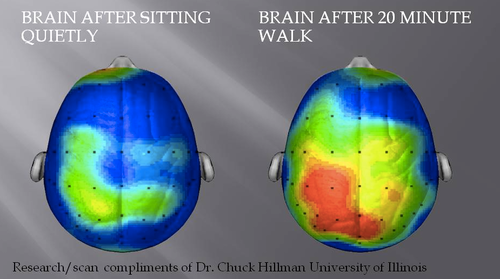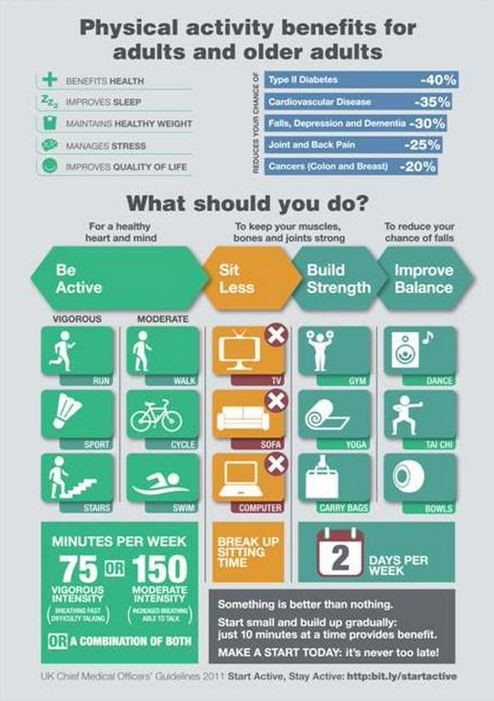Learn more about the benefits of exercising during exam time
What impact does physical activity have on wellbeing?
Physical activity has a large potential to enhance our wellbeing. Even bursts of 10 minutes can increase our mental alertness, energy and positive mood.
Participation in regular physical activity has been found to reduce stress and anxiety, and can also increase our self-esteem, as well as helping to improving the quality of life of people experiencing mental health problems.
Positive impact on our mood
Physical activity has been shown to have a positive impact on our mood. A study asked people to rate their mood immediately after physical activity (e.g. walk or housework), and periods of inactivity (e.g. reading a book or watching TV). Researchers found that the participants felt more content, more awake and calmer after activity.
Positive impact on our stress
The most common physical signs of stress include sleeping problems, sweating, and loss of appetite. Symptoms like these are generated by a rush of stress hormones in our body (‘fight or flight’ response). Physical activity can be very effective in relieving stress.

The guidelines recommend that adults should aim to be active daily, and complete 150 minutes of moderate intensity activity over a week, (or 75 minutes of vigorous activity). The more active you are the more benefits you will receive, however remember that even bursts of a 10 minute walk can increase our mental alertness, energy and positive mood.
*Or see physical activity guidelines: